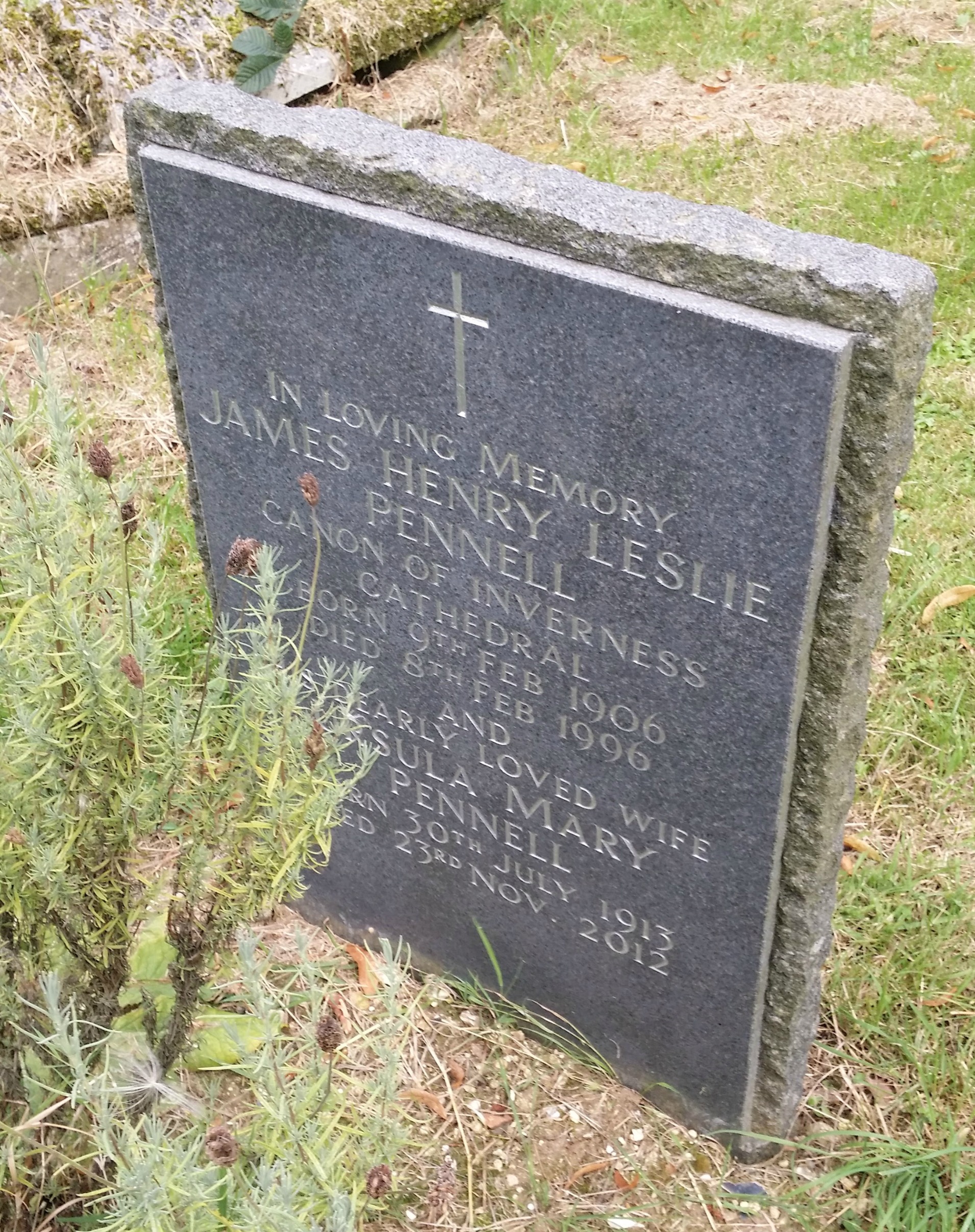Ursula was the daughter of the vicar of Bungay, the Reverend A Gledhill. As a teenager, she had suffered a nasty injury sledging which left her with a limp. Before the war she had visited Germany, and was present when Hitler visited Bad Godesburg to meet Neville Chamberlin on 22 Sep 1938. She was also witness to the ill treatment of Jewish citizens. She was fluent in French and German as a result of her trips abroad. She was described as being an active person who was good at organising and was a guide leader.
On 17 Sep 1938 her engagement to the Reverend James Henry Leslie Pennell, Rector of St Mary's Church, Dunblane was announced. They married in April 1939. With the outbreak of war he was mobilised with the Highland Division, serving with the British Expeditionary Force in France in 1939/40 and later was sent to India for 4 years, becoming Deputy Assistant Chaplain General to the 14th Army. Ursula worked with mobile canteens in Scotland in 1939 and 1940, seeing the effect of German bombing in the Firth of Forth. She moved to Cley-next-the-sea on the north Norfolk coast around 1941 where her parents were living. Her mother died in 1942.
After the war her husband was appointed in 1949 as Provost of St Andrew's Cathedral in Inverness and the couple lived there until 1965. She was a member of the Scottish Ornithologist's Club and reported bird sightings to them. The couple had two children. Subsequently he became a Rector at a church in Essex. He retired in 1972 and they moved to live Hundon, Suffolk, coincidentally the original home of the Special Duties Branch Royal Signals.
| Unit or location | Role | Posted from | until |
|---|---|---|---|
| Weybourne Outstation | Runner | 1942 | 20 Jul 1944 |
Ursula recalled being approached in 1942 by a "charming young officer" who arrived in a large staff car. Having confirmed her identity he initially enquired whether her husband was a vicar serving with the Army in India, then asking to speaking to her privately. Naturally she became quite concerned, doubtless worried he was there to deliver bad news. Instead he described a network of people "three miles apart and about three miles inland who would stay put if the Germans came". Would she be interested?
Once she had accepted, "the officer explained what I had to do and he told me the names of my contacts. To the east at Weybourne, it was the schoolmaster there, at the village school. He was my contact there. The other side at Blakeney there was a retired schoolmistress who I vaguely knew. If the Germans came, I had to gather every single bit of information I possibly could. I was given leaflets with the badges and uniforms, and various things I had to learn and was told I must always carry it everywhere. I used to stick them in my bra wherever I went. I had to destroy it when the Germans came. I was the only one in Cley"
She was concerned about the impression of this young officer visiting regularly, and whether her father was thinking they were carrying on an affair, as he would question her about him. So she made up a story about the Army wanting to ensure there was someone who could speak German in each area.
The officer told her about a couple of doctors who were part of the organisation - likely Dr Eddy at Aldborough and Dr Dr Holman at Aylsham.
She met also Captain Ingrams when he took over the area.
When Special Duties was stood down, she received a letter of thank, but no other recognition or medal.
After the war she became friendly with the retired school mistress who had been her contact. During the war they had only exchanged the occasional wink.
Ursula was interviewed on tape at least twice in relation to her wartime duties. An extract appeared in the Hidden Voices programme.
Perthshire Advertiser Perthshire, Scotland 17 Sep 1938
